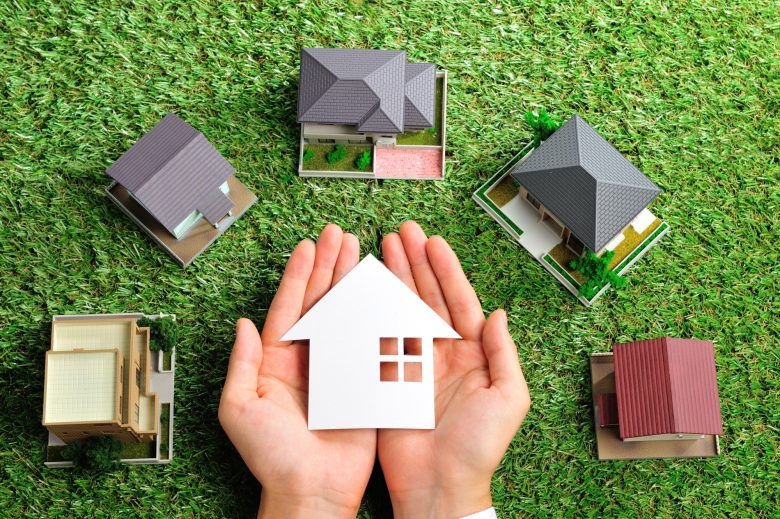Maintaining your property is an important part of maintaining its value and making it last as long as possible. Regular maintenance is important for both residential and commercial properties to ensure they function properly, are safe, and look good. This article discusses professional property care tips that will help you keep your property in good condition and looking great.
1. Develop a Detailed Maintenance Plan:
Start by developing a detailed maintenance plan that includes routine activities, dates, and ways to stay within budget. As a guide to maintaining your property, a well-thought-out plan will help you stay organized and address potential problems before they become worse.
2. Make Preventive Maintenance a Priority:
Preventive maintenance is important to avoid having to pay high repair costs later. Major systems such as HVAC, plumbing, and electrical need to be inspected and maintained regularly so that problems can be identified and resolved before they occur. Being strategic can save you time and money in the long run.
3. Regular Roof Inspections and Repairs:
One of the most important parts of any building is the roof. Perform regular inspections to identify and fix problems such as leaks, broken shingles, or sagging areas. Water damage, mold growth, and structural problems can be prevented by maintaining your roof on time.
4. Gardens and Outdoor Spaces:
Spend money on landscaping and maintenance of your outdoor space to maintain its attractiveness. To prevent flooding, prune and clear trees and shrubs and ensure soil drains well. A well-maintained outdoor space not only makes a home look better but also makes for a great first impression.
5. Gutter Maintenance:
Clean and inspect gutters regularly to prevent water damage to your roof and foundation. Water overflowing from clogged gutters can damage the structure of your home and make it less safe.
6. Regular Pest Control:
Use preventative methods to control pests before they occur. With regular inspections and treatments, you can keep your property free of pests that can damage buildings and endanger people’s health.
7. Well-functioning Energy Management:
Improve your home’s energy efficiency by adding more insulation, sealing holes, and using appliances that use less energy. This not only reduces energy costs but also helps keep the environment healthy.
8. Checking and Repairing Pipes:
Check water systems regularly for leaks, corrosion, and blockages. Correct any problems immediately to keep your water supply healthy and prevent water damage. In colder locations, you may need to insulate your pipes to prevent them from freezing.
9. HVAC System Maintenance:
Your HVAC (heating, ventilation, and air conditioning) system needs regular maintenance. Check for leaks, clean or replace filters, and ensure air is flowing properly. A well-maintained HVAC system works better and lasts longer.
10. Safety Electrical System:
Check your electrical system regularly for signs of wear, such as broken wires or old parts. Correct any problems immediately to reduce the risk of electrical fires and ensure the safety of your home and its occupants.
11. Check and Close Doors and Windows Regularly:
Check doors and windows for water and draft leaks. Properly sealed openings save energy and are waterproof, keeping the inside of a building safe and warm.
12. Spend Money to Buy Good Materials:
When you repair things or make changes, spend money on good supplies and labor. While they may cost more initially, they are worth it in the long run because they last longer and require less maintenance.
13. Maintain Files and Records:
Keep a complete record of all maintenance tasks, such as upgrades, repairs, and inspections. This document can help you keep track of your home’s history, identify patterns, and use it as a guide for future maintenance work.
14. Know the Rules in Your Region:
Know and follow the building regulations and codes in your area. By following the rules, you will avoid legal problems and ensure that your property meets safety and environmental standards.
15. Be Prepared for Emergencies:
Make sure you have a contingency plan ready for things that might not go according to plan, like a natural disaster or broken tools. Make sure everyone who lives there knows what to do in an emergency and has access to what they need.
Conclusion
Effective property care involves many different tasks, including planning, regular inspections, and being proactive. By following these expert tips, you can ensure your property lasts longer, increases in value, and is generally healthier. Remember, regular, thoughtful care is an investment in the future that protects your property and keeps both owners and residents happy.
FAQs
1. Why is it important to take good care of your property?
Maintaining your property is important to maintain its value, keep people safe and healthy, and avoid expensive repairs. Regular home maintenance can also make your home look better.
2. How often should I inspect my property?
You should have your property inspected at least twice a year, and additional inspections of systems such as HVAC, plumbing, and roofing should be performed. This frequency allows you to identify and resolve problems before they get worse.
3. What does preventive maintenance mean and why is it important?
As part of preventative maintenance, we take steps to identify and resolve potential problems before they worsen. It saves you expensive repairs, extends the life of your product, and reduces the chance of problems.
4. How can I ensure the safety of electricity at home?
Check your electrical system regularly for signs of wear, such as broken wires or old parts. Correct any problems immediately and if you want to be safe, you may want to hire an experienced electrician to perform a full inspection.
5. What are the most common signs of roof damage?
Leaks, missing or broken shingles, sagging spots, and water stains on the ceiling are all common signs of roof damage. Regular roof inspections can help detect these problems early and prevent water damage to your home.
6. What can I do to make my home more energy efficient?
To save energy, add more insulation, seal gaps around doors and windows, use energy-efficient appliances, and make sure your HVAC system receives regular maintenance. These steps not only reduce energy costs but also help keep the environment healthy.



